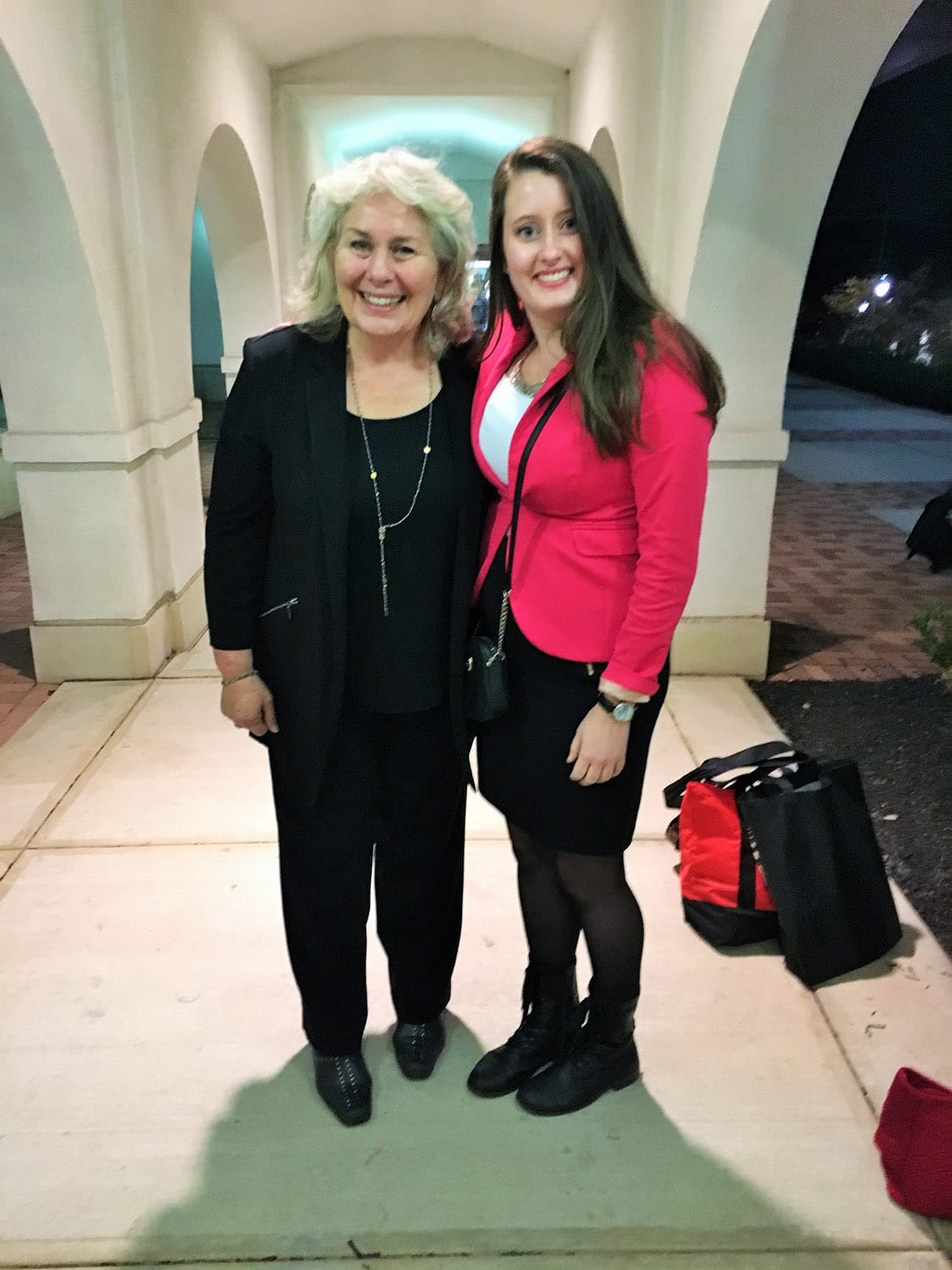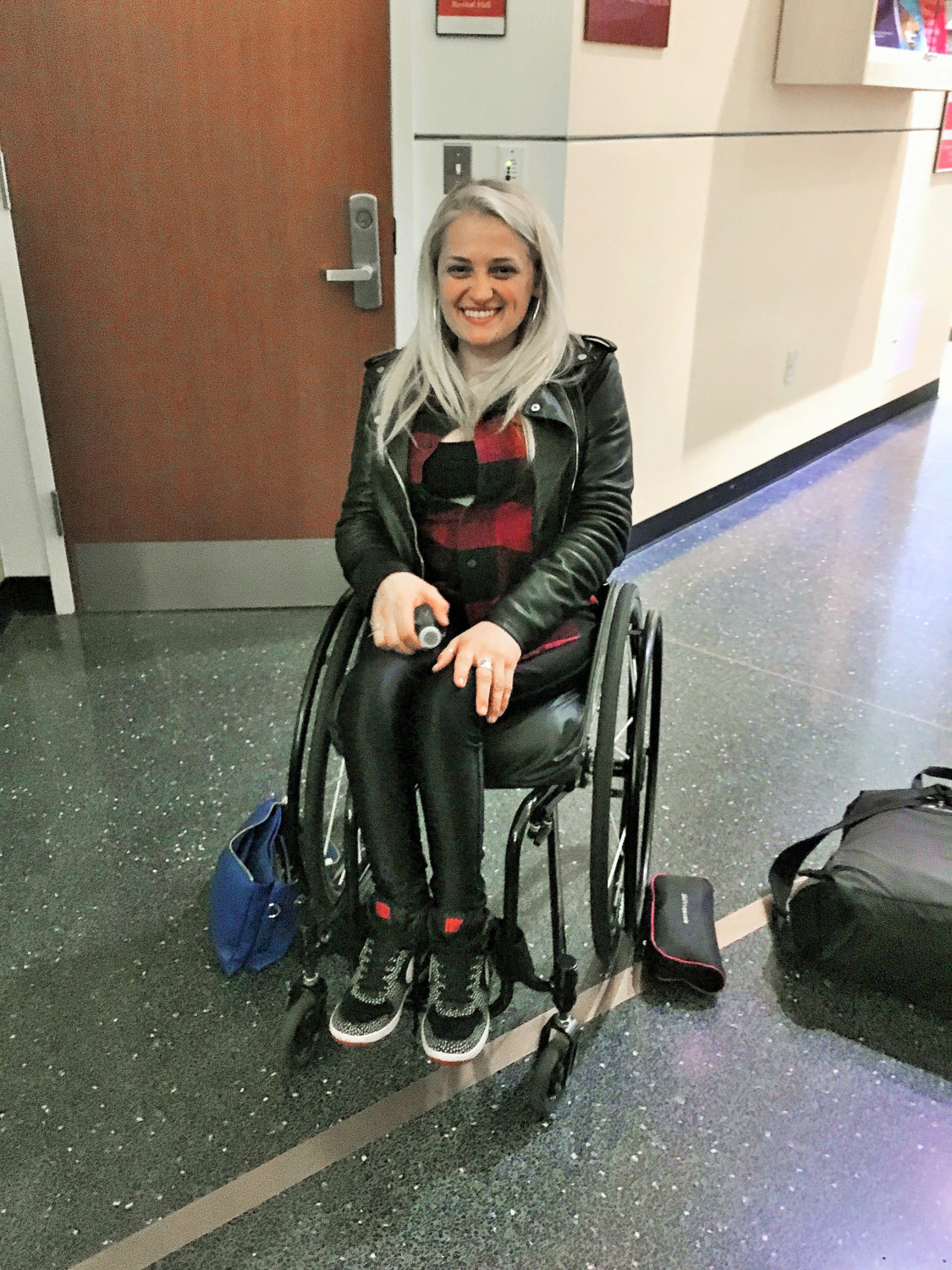A week after speaking at Montclair State as part of the ReelAbilities Film Festival, performer and humanitarian Ali Stroker said how important it is for disabled people to be represented on screen.
“When I was a little girl I would look on TV and on stage and in movies for people that looked like me,” said Stroker. “There really weren’t many women with disabilities being represented and that affected the way that I saw myself in the world. I think the entertainment industry is very powerful because it mirrors who and what we are in society, and if we can create more representation, I believe that some of the fear in the real world can be diminished.”
Stroker, who was in a car accident when she was 2 years old, said, “I have found that my greatest insecurity, which was being in a wheelchair and having this spinal cord injury, has become my greatest opportunity. Something that you resist in yourself can be the greatest gift in the world.”
For the third consecutive year, Montclair State hosted the ReelAbilities Film Festival on Nov. 1-3. A film was played each night, followed by a discussion which focused on an impaired individual and how they overcame the challenges that came with their disability.
These presentations coincided with the festival’s mission, which is to “explore, embrace and celebrate the diversity of our shared human experience.” Since its debut in 2007 at the Jewish Community Center in Manhattan, the first disabilities festival of its kind has expanded to 15 cities, including Montclair, N.J.
A broad spectrum of impairments, such as blindness, learning disabilities and down syndrome, have been discussed at ReelAbilities for nearly a decade of its existence.
Kaitlin Fitzpatrick, assistant director for ReelAbilities: Montclair and a student in Montclair State’s graduate program for speech language pathology, said, “ReelAbilities’ goal is to challenge the assumptions that individuals have about people who are differently-abled.”

Managing director of ReelAbilities: Montclair, Fran Prezant (left), and assistant director for ReelAbilities: Montclair, Kaitlin Fitzpatrick (right), on their way to the reception after a successful second night of the festival. Photo by Carlie Madlinger
She continued, “I think it is important to be held at Montclair State University because it is intended to be educational and a university is a place where people go to broaden their minds and knowledge, so it seems fitting. The university is also a great place for students and members of the community to come together on common ground.”
Fran Prezant, a professor in the department of communication sciences and disorders and the managing director of ReelAbilities: Montclair, said, “I think students should attend ReelAbilities because if you are going into any profession, having any life, interacting with people in any way, you have the potential to be a life-changing agent.”
On Nov. 2, the film “Margarita with a Straw,” which revolves around a young woman with cerebral palsy who embarks on a journey of self-discovery as she leaves her home in India to study at New York University, was played to a diverse audience. In attendance were Montclair State students, with and without disabilities, professors and people who were just curious to see what ReelAbilities was all about.
“It brought me to tears. It was very emotional,” said Olivia Park, a senior majoring in linguistics and a ReelAbilities volunteer. The film resonated with the recent passing of Park’s boyfriend’s nephew who, like the protagonist in the film, had cerebral palsy. Park, holding back tears, said, “He was so young. Seeing a kid like that is heartbreaking.”
Inspired by ReelAbilities and impaired individuals, Park said she plans to get more involved in the disabled community.
“I tutored someone in high school who had ADD,” she explained. “His mom didn’t put him on medication, but at the end of our session he was able to get those ticks out of the way. I told John, ‘You have made me a better person because I was able to help you.’”
As a transfer student, Park said, “I see a difference of students who are disabled and how they are treated just as any other student versus at community college, people would still pick on them. At Montclair, everyone seems to be more alert and accepting of students who have disabilities.”
Erika Christensen, a senior majoring in linguistics and a ReelAbilities volunteer, said, “I had Professor Prezant when I was a sophomore, and she is so invested with ReelAbilities. I went two years ago to one movie and I totally fell in love with it. It showed me a new aspect to people with disabilities that I never really knew.”
She concluded, “People with disabilities can do everything that we do and we need to stop putting limits on them, because they can accomplish just as much as we can, even more.”



